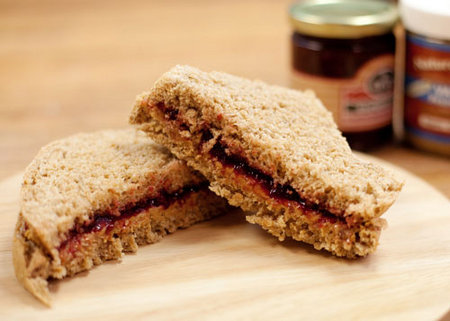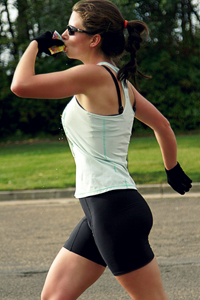Here are some tips on how to fuel yourself prior to your athletic event:
Eat:
Your meal should be small and primarily carbohydrate, low in fat, relatively low in fiber, and moderate in protein. This will provide your body with the carbohydrate fuel that it needs to run efficiently and will also pass more quickly through your system and prevent any unwanted gut distress.
Eating too close to your event or eating foods that will take a while to digest (high fat, high protein, or high fiber foods) will cause your gut and your muscles to “compete.” Eating requires your body to increase blood flow to the gut for digestion and can cause GI distress if your blood flow instead heads towards your muscles to power you through your event. Try to eat about two to four hours prior to the event to keep your body feeling ready to race.
Try to get familiar with your ‘pre-event meal’ prior to race day to see how you tolerate it. There is no ‘one size fits all’ type of eating pattern for athletes. You have to experiment and see what works with you and your system.
Good examples include:
- Mix up some oatmeal with sliced bananas and strawberries
- Chomp on a peanut butter and jelly sandwich
- Turn some bread into a healthy breakfast by toasting, smearing with almond butter and pairing with an orange
- Try a liquid meal replacement shake if you experience GI distress as they may be easier for your body to digest.

Drink:
You should always be hydrating, especially if you are physically active. It is especially important the week before the event. Hydration is key in regulating body temperature and blood pressure, aiding in your body’s processes, transporting nutrients, and clearing toxins from the body while dehydration can have a negative impact on your performance.
You should be sipping water throughout the day, not just gulping it every now and then. Try to drink enough so your urine is pale which a sign of hydration.
A 150 pound person should be drinking about 10-20 ounces of water or sports drink about four hours prior to your event. You may need a little more or a little less depending on your size. This will give you enough time to get your body hydrated and allow you to go the bathroom prior to the event. If you are still feeling thirsty sip on water closer to the event, just avoid chugging large amounts of fluid.

And Be Merry:
Enjoy your event and set a new personal record with proper fueling!
If you enjoyed this post, you may want to check out the first 2 posts in my series about nutrition for athletes:
How to eat for improved athletic performance
How whole grains and real food help athletes
Reference:
Position of the American Dietetic Association, Dietitians of Canada, and the American College of Sports Medicine: Nutrition and Athletic Performance. J Am Diet Assoc. 2009109:509-527.
Photo Credit for Girl Drinking: Sangudo via photopin cc



